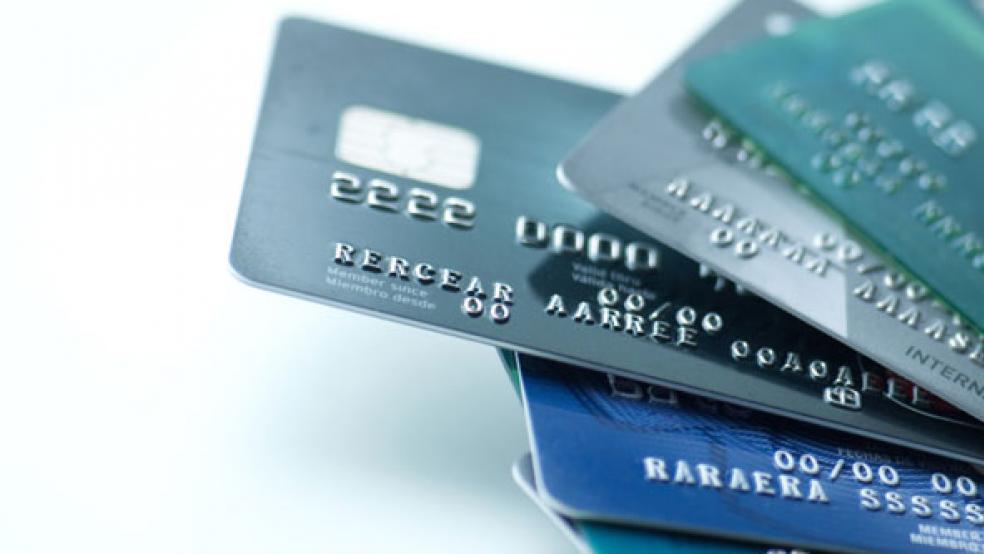As more cyber thieves steal personal and financial information, can you insulate yourself from the risk of having your money and identity stolen by giving up credit and debit cards?
Many consumers are rethinking their use of plastic after a massive cyber attack on retailers such as Target Corp and Neiman Marcus. For most Americans, living without credit and debit cards seems inconceivable. But Brie Hoffman has tried it, and mostly succeeded over the past six years.
Related: Target Data Breach Impacted As Many As 110M People
Hoffman, 52, says an occasional online purchase and buying an airline ticket are the only uses for her sole debit card, which sometimes serves as a second form of ID. It's a relief not having a credit card, says the California resident, who has worked as a schoolteacher and as a companion to an elderly man. "I don't even miss it," she says. "There's a freedom in not having bills."
A side benefit, Hoffman says, is not getting junk mail. As much as she has enjoyed living mostly off the plastic grid, she doesn't see herself getting rid of the debit card entirely.
Making the Shift
The move away from cards can be done, says Tim Rohrbaugh, chief information security officer at Virginia-based identity theft prevention and remediation firm Intersections, Inc.
Related: Your Credit Card Is Getting a High-Tech Makeover
The Federal Deposit Insurance Corporation estimates 17 million Americans have no bank accounts - so plenty of people do it. Most don't end up in a card-free situation by choice. According to the FDIC, most of those people are lower income and overwhelmingly don't feel as though they have enough money to maintain a bank account.
Even for the middle class, switching to an all-cash lifestyle isn't completely radical. "You can live with just cash and live more locally," Rohrbaugh says. It's done regularly in rural areas. That means shopping at a local merchant rather than going online. But, Rohrbaugh notes, "there are little difficulties that will just drive you nuts, like renting a car."
That has been the experience for Kim Tracy Prince, 42, a Los Angeles area blogger for Mint.com, who went credit card-free on November 1 and is working hard to curtail debit card use. Prince admits it was a great relief to know she shopped at Target using cash and is unburdened by what's hanging over the heads of tens of millions of others who paid using plastic.
She says she has shifted some online purchases to local stores and finds that being in her community makes it easier to keep to a cash-based spending plan. "I can just stay here. I go to the grocery store. I go to the gas station. I take my kids to school."
Related: 5 Credit Card Perks You Don't Know You Have
Traveling, on the other hand, will be an issue, she says. "How would you even go about purchasing a plane ticket with cash?" Prince wonders.
One tactic for buying online without a credit or debit card involves using the online service PayPal - although consumers must provide that company with bank account information. Another means of spending without connecting your identity to your transactions is to use prepaid cards branded by a major credit card issuer such as Visa or MasterCard.
"Most car rental and hotel companies do accept prepaid cards," says Brenda Gilpatrick, an Atlanta-based marketing and prepaid card expert. The catch, she says, is they typically tack on an extra 15 percent as security, then return it to the card later if there are no problems.
What You Give Up
For some personal finance experts, making the move away from traditional plastic just doesn't make sense. "Sure it can (be done). But why would you?" asks Greg McBride, senior financial analyst for Bankrate.com. "Consumers are not liable for unauthorized transactions on credit or debit cards as long as it's reported to your financial institution. However, no one has your back if cash is lost or stolen."
Federal law protects consumers from being responsible for fraudulent transactions on their credit card accounts.
Some other things sacrificed without a card include not being to pay for something in an emergency and losing out on rewards - something only of value to those who pay off their credit card balances each month and avoid interest charges.
While Hoffman says her decision to ditch credit cards and mostly avoid using a debit card was right for her, "it's not for everybody."




